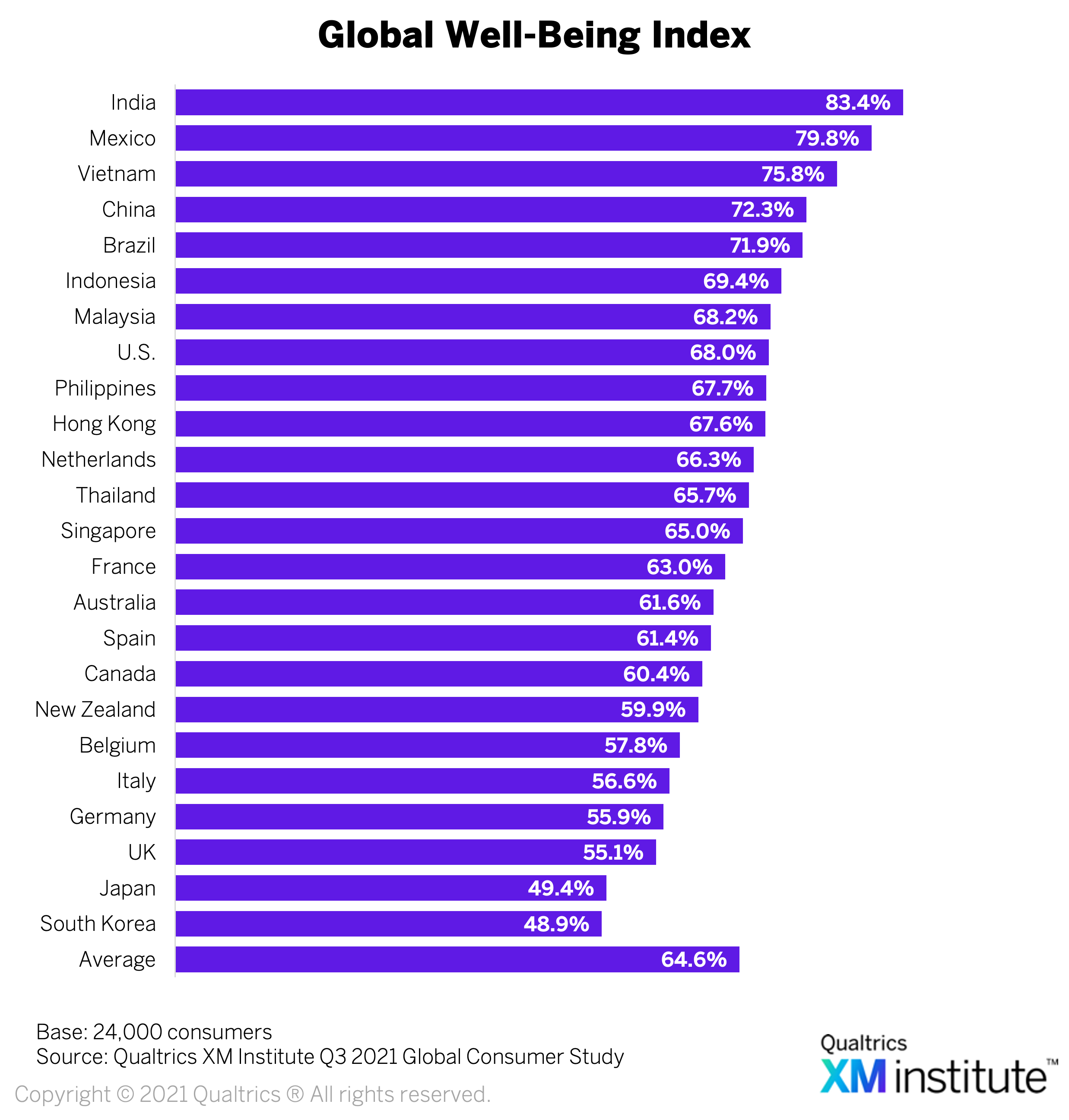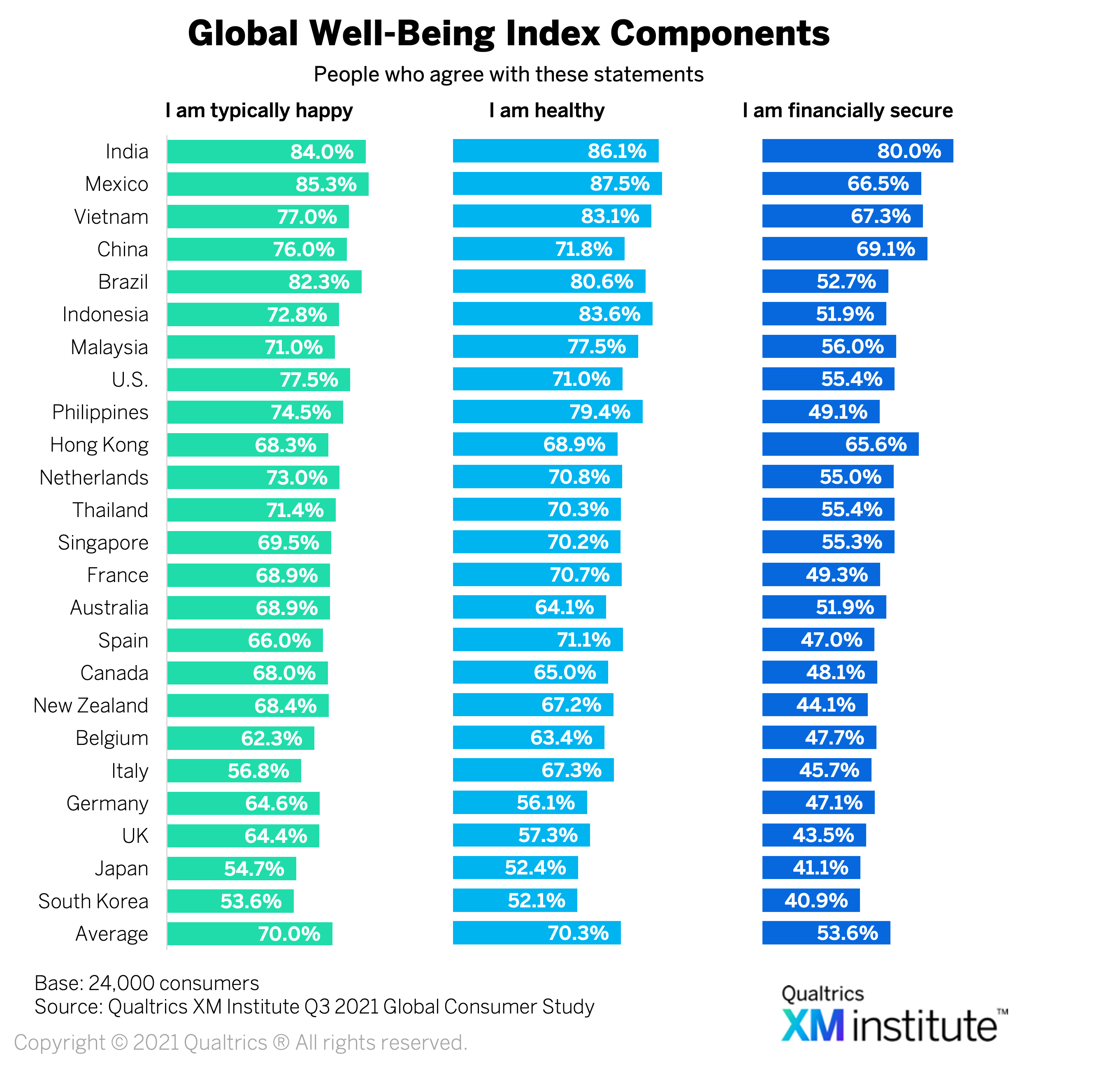To gauge the overall quality of life for the U.S. population, we’ve been tracking a Well-Being Index (WBi) for almost a decade. The WBi is an average of three measurements representing the percentage of adults (18 and older) who agree with these statements (see the methodology section at the bottom of the post):
- I am typically happy
- I am healthy
- I am financially secure
We decided to include the WBi questions in our recent global consumer study of 24 countries. While the most interesting insights come from examining changes in each country over time, there are still some interesting things we can learn from looking across countries.
Overall Well-Being Results
The average WBi across the 24 countries is 64.6%, but scores for individual countries vary quite a bit. As you can see in the chart below:
- India earned the highest score. With a WBi of 83.4%, India set the top mark in this study, followed by Mexico and Vietnam.
- South Korea earned the lowest score. At the bottom of the list, South Korea’s WBi is 48.9%, which is only slightly lower than Japan’s WBi.

Components Of The Well-Being Index
We also examined results for the three underlying elements of the WBi. On average across 24 countries, 70.0% of people agree that they are typically happy, 70.3% agree that they are healthy, and 53.6% agree that they are financially secure. The chart below shows the results across countries. Here are some interesting findings:
- Mexico leads in happiness and healthiness. Mexican consumers are the most likely to agree that they are happy and healthy, followed by Indian consumers who are close behind in both areas. South Korea and Japan are the two lowest countries in these areas.
- India substantially leads in financial security. Eighty percent of Indian consumers agree that they are financially secure, which is more than 26 %-points above the global average, and 11 %-points above China, which is the second-highest in this area.
- Countries are split between happiness and healthiness. While financial security is the lowest scoring element across all 24 countries, the countries were split when it comes to happiness or healthiness being their top component. These are the 12 countries where happiness came out on top: Australia, Brazil, Canada, China, Germany, Japan, Netherlands, New Zealand, South Korea, Thailand, the UK, and the U.S.
- Low variance countries. On average, we found a 16.7 %-point difference between the highest WBi component and lowest WBi component within a country. However, three countries showed very little variance, less than 7 %-points: Hong Kong, India, and China.
- Large variance countries. The Philippines and Indonesia had the largest gaps across WBi components, as the percentage of consumers who agree that they are healthy outpaced those who agree that they are financially secure by more than 30 %-points.

Methodology
Here’s how we did the study:
- As part of a broader global study, we gathered feedback from 1,000 adults in each of 24 countries through an online survey.
- For each country, we set respondent quotas that matched their population for age, gender, and income.
- We asked consumers the degree to which they agree or disagree with the statements above, using a five-point Likert scale.
- We calculated the percentage of people who responded with “somewhat agree” or “completely agree” to each of three statements: I am typically happy, I am healthy, I am financially secure.
- To create the overall WBi, we calculated the average of the three sub-components.
The bottom line: We hope to see people around the world become happier, healthier, and more financially secure.
Bruce Temkin, XMP, CCXP, is the Head of Qualtrics XM Institute





